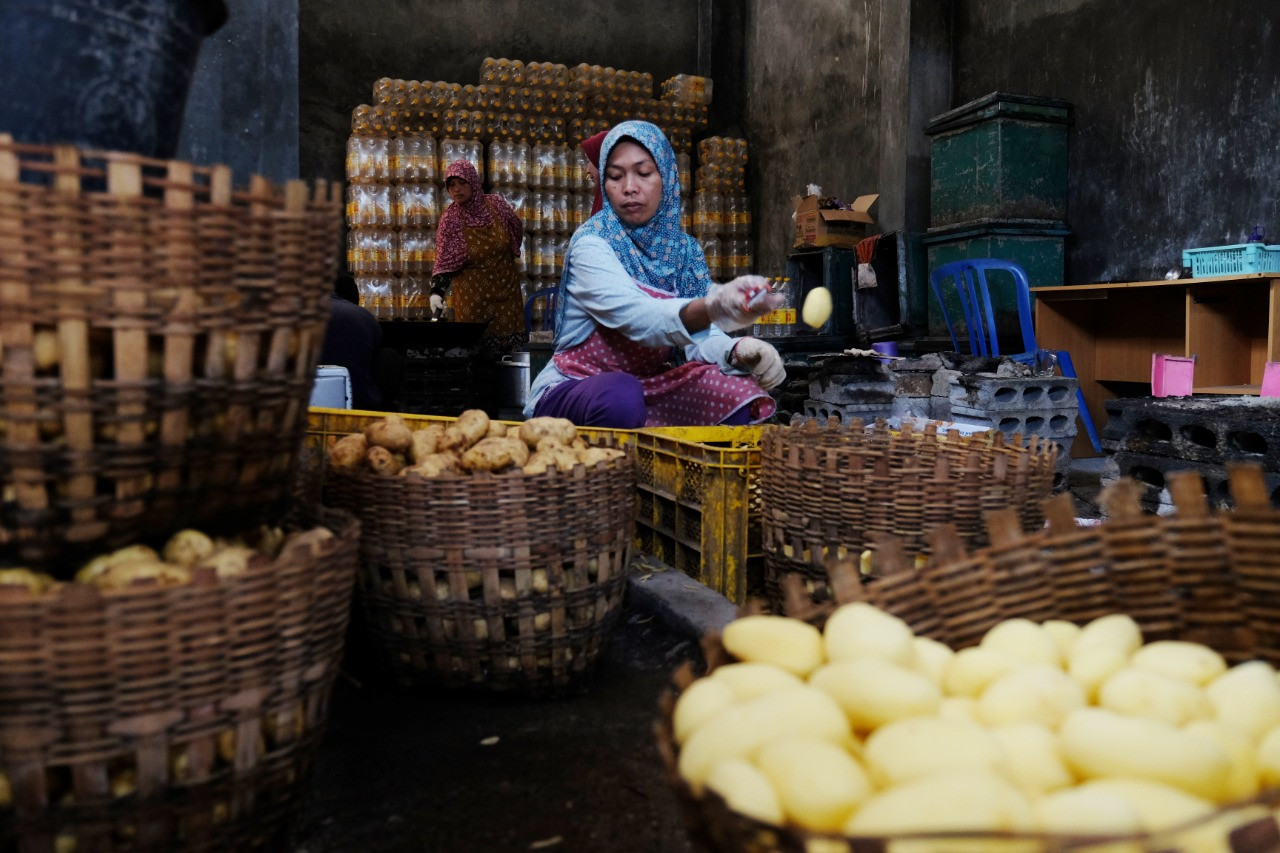Popular Reads
Top Results
Can't find what you're looking for?
View all search resultsPopular Reads
Top Results
Can't find what you're looking for?
View all search resultsState budget records exceptional performance, highlights controlled economic recovery
Based on the Economic and Financial Report released by the Fiscal Policy Agency (BKF) this year.
Change text size
Gift Premium Articles
to Anyone
B
ased on the Economic and Financial Report released by the Fiscal Policy Agency (BKF) this year, Indonesia recorded a trade balance surplus of US$2.9 billion in May.
The surplus is part of a continued trend that has lasted for 25 consecutive months, and is expected to have a positive impact on Indonesia’s gross domestic product (GDP) growth in the second quarter of 2022.
Customs and Excise Communications and Service User Guidance director Nirwala Dwi Heryanto explained that the trade balance surplus could be seen in the overall export and import performance, which grew positively year-on-year (yoy).
“Cumulatively, the trade balance recorded a surplus of $19.79 billion. As of May 31, customs and excise revenues have also grown significantly by 41.26 percent yoy, reaching 57.27 percent of the 2022 state revenue and expenditure budget [APBN] target," he added.
This achievement has been driven by the positive performance of all components of customs and excise revenue, such as import duties with growth reaching 32.46 percent (yoy), excise revenues with growth in tobacco products (CHT) by 41.73 percent (yoy) and beverages containing ethyl alcohol (MMEA) by 22.77 percent (yoy), as well as export duties with a growth of 54.46 percent (yoy) compared with the same period in 2021.
Overall, the continued positive performance supports the government’s efforts for sustainable national economic recovery following the controlled COVID-19 pandemic management. This can be seen in APBN expenditure, highlighting how the exceptional performance has been used to finance various sectors.
For example, APBN expenditure in the health sector was used for patient claims worth Rp
16.2 trillion ($1.09 billion), incentives for healthcare workers worth Rp 2 trillion, vaccinations worth Rp 1.9 trillion and health services worth Rp 1.2 trillion.
In addition, APBN expenditure was also used to finance fuel compensation, subsidies, as well as the Pre-Employment Card program with the total spending at Rp 334.7 trillion.
The realization of subsidies also increased compared with 2021, influenced by the acceleration of the disbursement of energy subsidy underpayments, an increase in the distribution of subsidized goods and the rise of the Indonesia crude price (ICP).
According to Nirwala, the government is committed to use the APBN to improve the welfare of the Indonesian people.
“As a form of accountability, the government is actively campaigning for the realization of the APBN performance. We also appreciate members of the public who take part in supporting the management of the state budget," he concluded.










